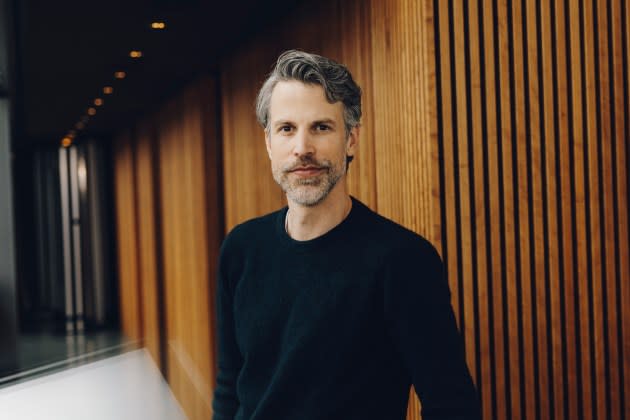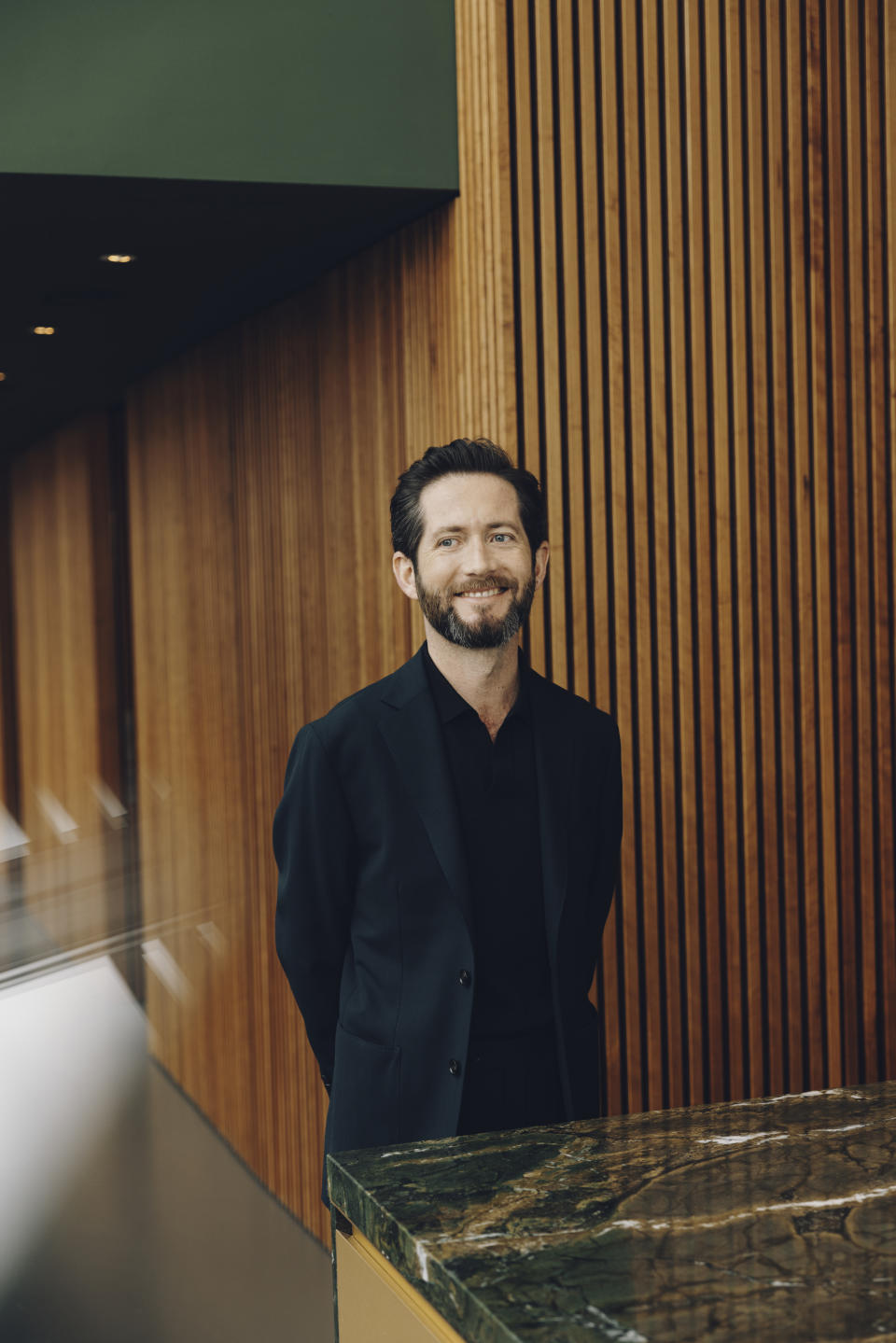BestSecret Group Opens Offices in Paris, Milan

PARIS — Members-only off-price fashion player BestSecret is opening offices in Paris and Milan as it seeks to elevate its brand offerings by partnering with more luxury houses.
“If you want to have elevated brands, or if you want to bring on designers and luxury brands, you have to be in Paris and Milan,” chief supply officer Jason Visse-Demortier told WWD, speaking in the central Paris office.
More from WWD
Data Shows Average Order Value Gives Boost to Fashion Retailers in the First Half
The TikTok-Famous, Celeb-Loved Laneige Lip Sleeping Mask Is on Sale at Amazon for 30% Today
“It allows us to be in the markets where it happens,” he said. “Paris and Milan cover most luxury brands, and you see that the energy behind the fashion shows transforms the cities, so it actually helps us to ‘live the dream’ one step further. We can already feel it throughout the company.”
Visse-Demortier will relocate from the Munich headquarters to Milan, and former Yoox Net-a-porter executive Elisa Radaelli, who took up the vice president men’s fashion apparel post in July, will also be based there.
The 16-year-old German site is putting down stakes in the fashion capitals as part of its European growth plan. Historically the company’s main markets have been its home country, as well as Austria and Switzerland. Now it’s seeking to strengthen its share across the 27 EU countries, with the aim of having 50 percent of its revenues come from outside of Germany by 2025.
“Our elevation strategy is also an internationalization strategy,” said chief executive officer Moritz Hahn. A higher share of French and Italian luxury brands is key to that growth, as they have broad brand recognition across borders. “We have figured out that those Italian and French brands are international, in a way that they can help us in every single European country,” Hahn said.
Perusing the site you’ll see smaller brands from the big conglomerates, as well as “Succession”-endorsed labels lauded for their quiet luxury street cred. Many of these brands have accessory-heavy offerings, or small selections, which Hahn and Visse-Demortier hope to scale into ready-to-wear and new categories. They emphasize that they encourage brands to start small to build trust and test their model.
Visse-Demortier said they’ve identified about 100 pure luxury brands they want on the site – so far they’ve reached about half that target. The new Paris and Milan offices are intended to step up that brand reach. “In our elevation strategy, we actually are reducing our investments in the mid-market and reinvesting into mostly designer and luxury brands,” he said.
If you’re asking “Who?” that’s by design. As the name indicates, the site is secretive and doesn’t advertise, keeping marketing spend to a minimum of about two to three percent of annual budget. It aims to be a private club of shopping, and keeps its invite-only cards close to its chest.
“It’s hard to get into,” Hahn said. They keep a close calibration of membership by limiting the amount of people per region that can join its big-spending ranks, and culling customers after a year if they don’t shop. “You can be a celebrity or superstar, but there’s no way you can get in unless you are invited.”
Hahn said the closed invitation model is designed to protect brand equity, and move volume with minimal visibility as companies grapple with offloading overstock without visible discounting.
Still, the site has 3 million active customers that are, for the most part, less responsive to the macroeconomic headwinds facing other fashion businesses. Hahn called the closed membership model “magic,” saying that the top spenders from 2017 are spending the same amount in 2023.
“The top 15 percent of our customers make up 50 percent of our revenues, and they shop more than 1,500 euros annually,” Hahn said.
Spend on luxury is increasing “in the triple digits,” Visse-Demortier added. “There is a lot of appetite.”

The Munich-based company is focused on fashion overstock, with about 5 million items from high street to high-end brands. The group operates brick-and-mortar stores too, with five across Germany and Austria, which also require a membership card for entry. Hahn said it sells over 95 percent of its merchandise online; the rest is moved to these offline stores.
They also skip the flash sale model that has traditionally defined the off-price market. “For us a flash sale is the ‘90s TV station. And we are the Netflix model,” said Hahn, which leads to a continuous flow of goods to the site.
BestSecret Group is owned by London-based private equity firm Permira Funds, as well as the founding family company Schustermann & Borenstein, and posted 1.05 billion in revenues in 2022, up 11.5 percent year-over-year.
“All other online fashion [sites] I’m aware of have a leaky bucket and would shrink without new customers. We don’t shrink without new customers,” Hahn said.
Climate change and unpredictable weather patterns have upended the traditional fashion calendar, but proved a boon for the company. The rainy European spring delayed the summer spend, while the hot autumn months have additionally altered the market.
“We currently see availability coming from the difficulties mostly relayed to the delayed start of the season. It’s directly impacting brands and most likely creating stock situations,” Hahn said.
The company also benefits from the new EU ban on destruction of unsold clothing, which luxury brands used to dispose of in order to protect their full price sales models. “They’re actually happy that there’s someone who has a solution in a very controlled way, turning inventory into cash without creating any bad side effects,” Hahn said.
The businesses overproduction model is also a contributing factor, he added, but brands are starting to use better predictive models to more accurately predict size ranges, for example.
“The production cost is tiny in comparison to the sales you can generate, but we also see the overall volume of stock available reducing. We are looking at taking the biggest market share of what I would say is a reducing market,” Hahn said. Brands have also been reviewing their pricing strategies in response, he added.

Hahn said that while online shopping traditionally grapples with high return rates, the majority of returns are resold after quality checks, or can be routed into their brick-and-mortar stores. Ninety-five percent of the revenue comes from online sales. “We are a pure play online and the five percent [of brick-and-mortar sales] is there just to support the online strategy,” Hahn said.
“The very reason for existence is sustainability, since we are clearing products that would have or could have been discarded in the past,” Hahn said.
The company launched a take back program last year, pulling in 5,500 items for resale on Hamburg-based site Vite EnVogue. They also launched their own secondhand service as a pilot program, with a heavy emphasis on handbags including brands they do not yet carry.
As for expanding in the U.S., they’ve seen “traction [in luxury growth] better than we expected,” said Hahn, but for now the focus is on the European elevation and expansion strategy.
“We have such a fantastic machine that we don’t want to overheat the machine, because then we would risk our promise to the brands,” Hahn added. “We don’t want to be loud.…Let’s not try to grow 100 percent and be a short-term flash in the pan and risk the trust we’ve build over decades.”
Best of WWD


